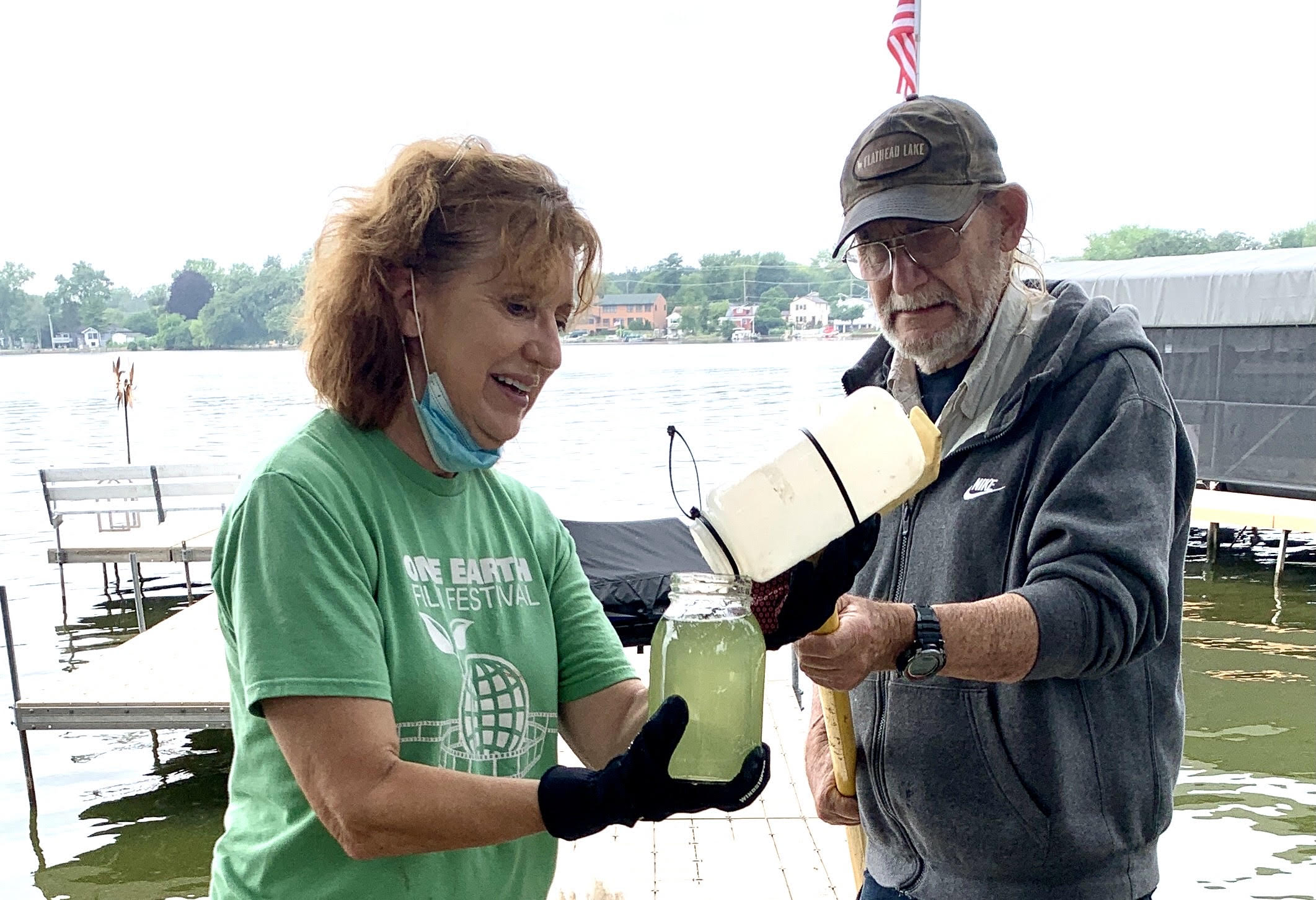
Speaker Series
September 12: Toxic Blue-Green Algae Is Hurting Lake County’s Lakes
Lake County, Illinois, is so named for a reason: We have nearly 200 lakes. Increasingly, though, some of these lakes are afflicted with toxic blue-green algae.
If you care about the health of our lakes, you won’t want to miss our virtual program at 7 p.m. on September 12. Gloria Charland and Jim Bland will explain what blue-green algae is, what kind of damage it is causing in Lake County Lakes, and why it is dangerous to humans, animals, and ecosystems. They also will discuss what action is being taken to combat blue-green algae—and suggest ways you can personally advocate for clean waters.
Gloria is co-chair of the Squaw Creek Clean Water Alliance, a volunteer-led watershed group in western Lake County. Jim is a former official with the U.S. Environmental Protection Agency. Longtime members of the Woods & Wetlands Group, Gloria and Jim have worked together on four studies of the Squaw Creek watershed.
Register now, before you forget, and then join us via Zoom at 7 pm on Sunday, September 12.
This virtual program is sponsored by the Sierra Club Woods & Wetlands Group, whose members live throughout Northeastern Illinois. The program is free and open to the public. Registration is required to obtain the login link.
The Woods & Wetlands Group holds public meetings on the second Sunday of each month. Upcoming speaker programs include:
- October 10: Anne Lacy of the International Crane Foundation in Baraboo, Wisconsin, will discuss efforts to preserve all 15 species of crane worldwide. “Through the charisma of cranes, we envision a future where people work together to protect and restore wild crane populations and the landscapes they depend on,” Lacy said.
- November 14 (tentative): Author John Hildebrand will share what he learned by paddling a canoe on many of Wisconsin’s wild rivers. Cobbling together rivers, from the burly Mississippi to the slender wilds of Tyler Forks, Hildebrand navigated the beautiful but complicated territory of home. In once-prosperous small towns, he discovered unsung heroes—lockmasters, river rats, hotelkeepers, mechanics, environmentalists, tribal leaders, and perennial mayors—struggling to keep their communities afloat. "Wisconsin is in the midst of an identity crisis, torn by new political divisions and the old gulf between city and countryside,” he said.
Additional programs are in the works, according to Linda Tilton and Thomas Lee.